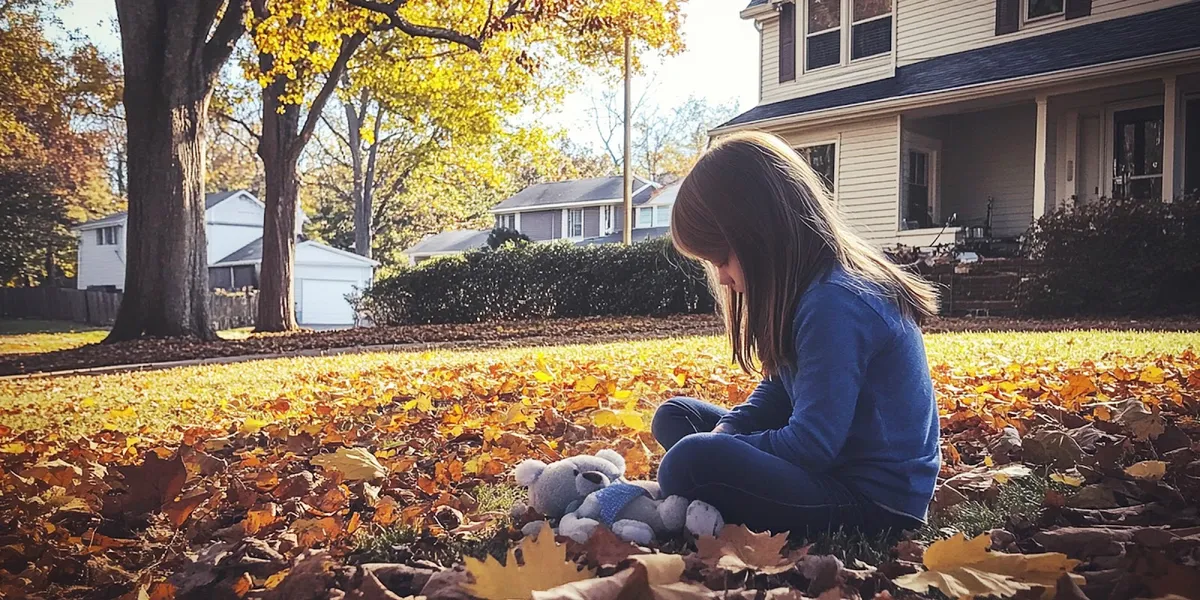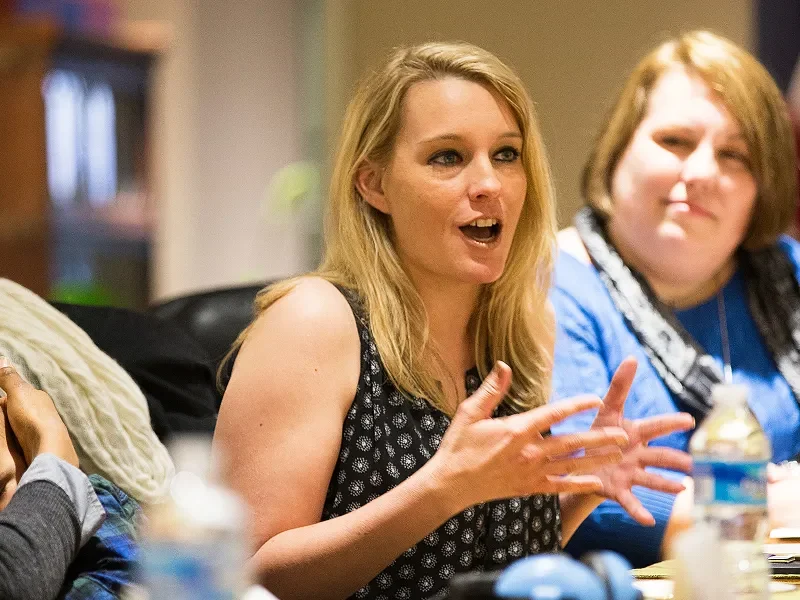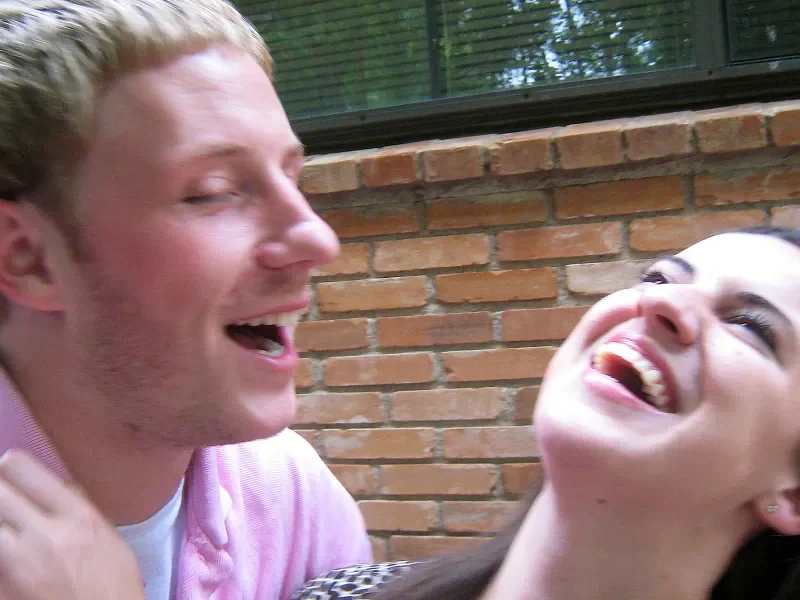When my neighbor died, I tried to help his grieving family. His daughter was left with her stepmother, who seemed kind at first. But as I spent more time with the little girl, I started to see things that didn’t feel right. I knew I couldn’t just stand by. I had to protect her, no matter what.
I loved our neighborhood, especially because of my neighbors. The tree-lined streets and cheerful houses made it feel warm and welcoming.
Everyone was friendly and always ready to help. If someone needed a hand, there was never a shortage of offers. It felt like being part of a big, caring family.
I worked as an elementary school teacher. My days were filled with children’s laughter and curiosity.
I loved helping my students and was always ready to help my neighbors’ kids too.
Whether it was homework, babysitting, or just offering a safe place to play, I was glad to pitch in.
Next door lived a wonderful family—Thomas and Martha. But tragedy struck when Martha died during childbirth.
They had a sweet little girl named Riley. Thomas did his best to raise Riley alone.
Less than a year ago, he remarried. His new wife, Carmen, seemed lovely. She was a homemaker and always helped Thomas with Riley.
She didn’t fit the image of a wicked stepmother from fairy tales. She took Riley to clubs and spent time with her.
But one night, a tired Thomas got into a car accident while returning from work. Carmen and Riley were devastated.
I did what I could—bringing over food, offering to take Riley for walks so Carmen could get some rest.
One afternoon, Carmen and Riley came over for tea. Riley, who used to be so cheerful, sat quietly, eating the pie I had baked.
Her silence was unsettling, and I couldn’t help but wonder what was going on behind those sad eyes.
“I don’t know how you manage,” I said, my voice soft. “I know what it’s like to lose someone you love.
But you still have a child who needs a childhood despite everything. That takes strength.”
Carmen sipped her tea and nodded. “Your fiancé died, right?” she asked.
I swallowed hard. “Yes,” I said. “Mike died five years ago.” Even saying his name made my chest tighten. It felt like fresh grief, even after all this time.
“I’m sorry,” Carmen said. “I didn’t mean to bring up old wounds.”
“It’s okay,” I said. “I just… I don’t really like talking about it.” I forced a small smile.
Carmen set her cup down. “Have you thought about moving on?” she asked. “Finding someone new? Starting a family, having a child?”
Her words hit me hard. I felt my cheeks flush. “I… I can’t have children,” I said. My voice was barely above a whisper.
Her eyes widened. “Oh, Emily, I’m so sorry.”
“It’s fine,” I said. “You didn’t know. But I still hope that maybe someday I could be a mom to someone. Maybe not in the traditional way, but still… like you are to Riley.”
Carmen’s expression softened. “Riley hasn’t called me ‘mom’ yet,” she said. “But we do have a wonderful bond, don’t we, Riley?”
Riley, who had been quietly picking at her pie, nodded without looking up.
Carmen continued, “We spend a lot of time together. I love taking her to clubs and doing things with her. I feel like my purpose in life is to be a mom.”
I smiled. “That’s wonderful,” I said. “Not everyone finds their purpose so clearly. Riley is lucky to have you.”
They stayed a bit longer, chatting about small things. Riley remained quiet, only answering direct questions.
One afternoon, as I walked home from school, I saw Riley outside. The air was crisp, and dry leaves crunched under my feet. She stood near the sidewalk, her hands red from the cold.
“Hi, Riley,” I said. “Aren’t you cold?”
She shook her head. “No.”
I took off my scarf and wrapped it around her. “Why are you out here alone?”
“Carmen has a guest,” Riley said. “She told me to play outside.”
I crouched down to meet her eyes. “What guest?”
She shrugged, looking away. “Some guy named Roger. He’s been here more than once.”
A knot formed in my stomach. Thomas hadn’t been gone long. Was Carmen already seeing someone new? It felt wrong. I reached for Riley’s hands. They were ice-cold.
“Why are you lying about not being cold? You are freezing,” I said. “Come on. Let’s get you inside and warm you up.”
Riley hesitated but took my hand. At home, I made tea and heated up some leftovers. She ate with big bites, as if she hadn’t had a good meal in days.
“Does Carmen feed you well?” I asked, keeping my tone light.
Riley nodded. “Yeah. I’m not hungry. She orders takeout a lot. I miss homemade food, though.”
I stirred my tea. “What do you do together? Do you still go to clubs or play games?”
She shook her head. “We clean. Carmen says it’s my duty now.”
“Just cleaning?” I asked. “No more clubs or fun?”
“No,” she said. “Carmen says we don’t have much money. She’s busy with Roger anyway.”
I bit my lip, trying to hide my worry. Carmen had seemed so caring, but maybe I had been wrong.
Riley wasn’t being hurt, but kids needed more than just a roof over their heads. They needed love, attention, and fun.
“Listen,” I said gently. “If Roger comes over again and Carmen sends you outside, I want you to come here. Even if I’m not home, the key will be under the mat. Okay?”
Riley’s eyes widened. “Really?”
“Really,” I said. “Even if you just feel lonely, you can come over. We’ll play, bake cookies, whatever you want.”
For the first time that afternoon, Riley smiled. It was small, but it was real. “Okay,” she said.
I hugged her, feeling the weight of her tiny frame. I wished I could take away all her sadness.
From that day on, Riley came to me every day. Sometimes I’d come home from school, tired and ready to kick off my shoes, only to find her already sitting on my couch.
Other times, I’d be stirring soup on the stove when a soft knock at the door announced her arrival. “What’s for dinner?” she’d ask, her eyes bright with hope.
Day by day, I saw her change. The sadness that had weighed her down seemed to lift.
Her laughter filled my home, clear and sweet, like music. The spark that had disappeared after Thomas’s death started to shine in her eyes again.
I wanted her to feel safe and loved. I invented silly games, pulled out old board games, and we painted and drew until our fingers were covered in colors.
I read her stories, sometimes with silly voices that made her giggle. We talked, too. Riley shared her worries, her fears, and the things that made her sad.
Then, one late evening, I heard voices under my window. I moved slowly, careful not to make a sound, and opened the window just a bit.
Carmen stood there with a man—probably Roger—whispering harshly in the cold night air.
“Why can’t we talk at your place?” Roger asked. His voice was sharp, cutting through the quiet night.
Carmen sighed. “The kid is asleep. I don’t want her to hear us,” she said.
Roger huffed. “That kid is nothing but trouble.”
Carmen’s tone turned bitter. “You think I don’t know that? Who could’ve guessed Thomas would leave everything to her? I thought it would all be mine.”
“So, what’s the plan?” Roger asked.
“I’m looking for a loophole in the will,” Carmen said. “As soon as I find a way to transfer everything to myself, I’ll get rid of her.”
“Get rid of her?” Roger sounded curious. “What does that mean?”
“I don’t know,” Carmen said. “Maybe give her to social services. I can’t deal with her anymore.”
“Well, it can’t happen soon enough,” Roger muttered.
Their voices faded as they walked away. I slowly closed the window, my hands trembling.
My mind raced. Carmen never cared about Riley. She only wanted the inheritance.
She pretended to be a good mom, but it was all a lie. And now, she wanted to throw Riley away like she was nothing.
The lawyer who handled Thomas’s will, Mr. Davis, was the father of one of my students.
He often picked up his son after school, and we’d chat for a minute or two.
One afternoon, as his son ran to grab his backpack, I decided to ask him about Thomas and Carmen.
“Mr. Davis, do you have a moment?” I asked, keeping my voice low.
“Of course,” he said, offering a kind smile.
“I know it’s not really my business,” I began, “but I’m worried about Riley. I wanted to ask about Thomas’s will.”
He nodded, his expression turning serious. “Go ahead.”
“I’ve heard Carmen talking about taking the inheritance for herself. She mentioned finding a loophole,” I said.
Mr. Davis frowned. “Thomas’s will is solid. Everything goes to Riley. Her guardian manages the money and the house until she’s of age, but no one can take it from her.”
“You’re sure Carmen can’t do anything to change that?” I asked.
“I’m sure,” he said. “But if it helps, I can speak to Carmen again. Make sure she understands.”
“I’d really appreciate that,” I said.
He nodded. “I’ll handle it. Riley’s safety is important
I nodded, relief washing over me. Riley needed someone to stand up for her, and I was glad I wasn’t alone in this.
Riley kept coming to me. She would show up with her small backpack and her hair a bit messy.
I never understood how Carmen could be so cold to her. Riley was a bright, kind child. She was impossible not to love.
I had thought about adopting her more than once. The idea filled my heart with warmth.
I wanted to give her the safe and loving home she deserved. But I knew it wasn’t realistic.
The court would see Carmen as the rightful guardian. She was Thomas’s wife and lived with Riley in the house. I felt helpless.
One afternoon, as Riley and I played with sidewalk chalk, Mr. Davis came out of Carmen’s house.
She was yelling, her voice sharp and angry, echoing through the quiet street.
“I’ve said everything I needed to say,” Mr. Davis said. His voice was calm, but his face showed no patience.
Carmen stood on the porch, her face red with anger. “Why do I need this kid if I can’t get anything out of it?!” she screamed. Her fists were clenched, and her whole body shook.
I took Riley’s hand. “Come on, sweetheart,” I whispered. “Let’s go inside.” I didn’t want her to hear any more. She didn’t need to know how little Carmen cared about her.
I went back outside, Carmen’s yelling still echoed through the quiet street. “She’s just a burden! Because of her, I can’t build my own life!”
“Then give her up,” Mr. Davis said. “Emily would love to adopt her. You’d be free to live your life.”
Carmen’s voice turned sharp. “Exactly! It’s all you!” She pointed at me. “You set this up! You want the house! You want everything for yourself!”
“This house belongs to Riley,” Mr. Davis said. “It can’t even be sold until she turns 21. You know that.”
“I just want Riley to have a happy childhood. That’s all,” my voice steady.
“Liar!” Carmen shouted, spit flying as she spoke. “You want her inheritance! You’ve been planning this all along!”
I shook my head and closed the door. There was no use arguing. Carmen’s mind was made up.
Inside, Riley stood by the door. Her eyes were wide, her hands clutched tightly to her shirt. “Would you like to be my mom?” she asked, her voice small but hopeful.
I knelt beside her. “I’d be the happiest person if that happened.”
Riley threw her arms around me, and I held her close. That was all I needed to start taking action.
With Mr. Davis’s help, I began the process to take Riley in. The paperwork, the meetings, the questions—it felt endless. But I didn’t give up.
Somehow, by what felt like a miracle, I succeeded. Mr. Davis’s testimony helped a lot.
He had seen Carmen yelling, saying she didn’t want Riley. Other neighbors had heard it too. Their support was a blessing.
But the most powerful voice was Riley’s. When asked where she wanted to live, she looked right at me. “I want to live with Emily,” she said. “Only with her.”
When the court agreed, joy filled me. I became Riley’s mom. Carmen had to move out, left with nothing but her own choices.


